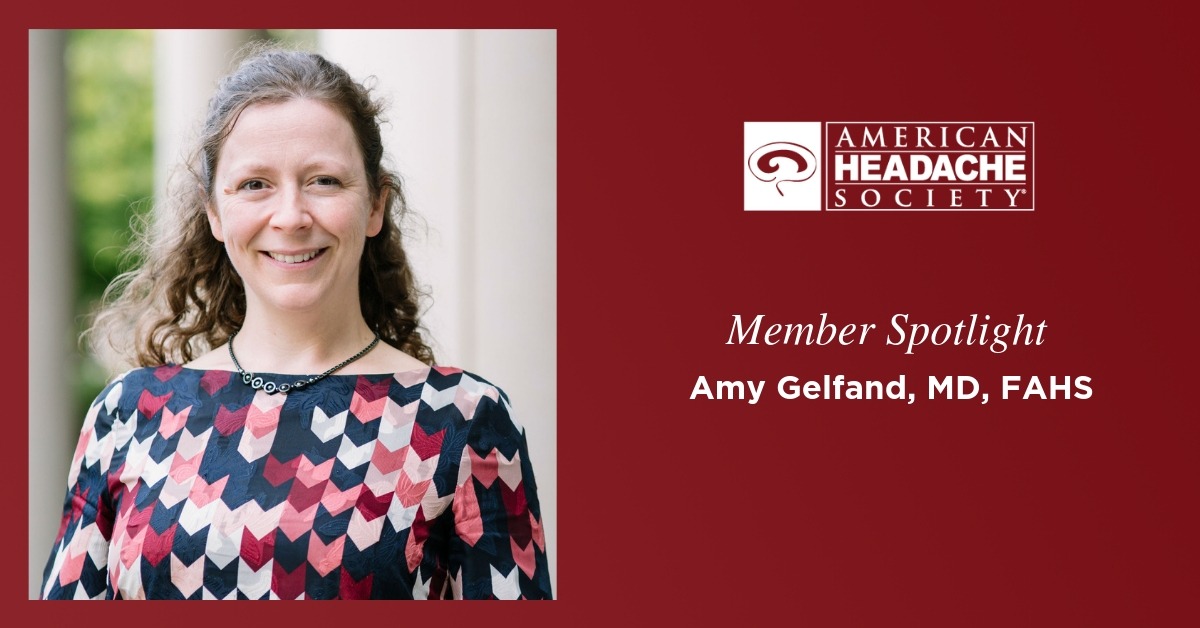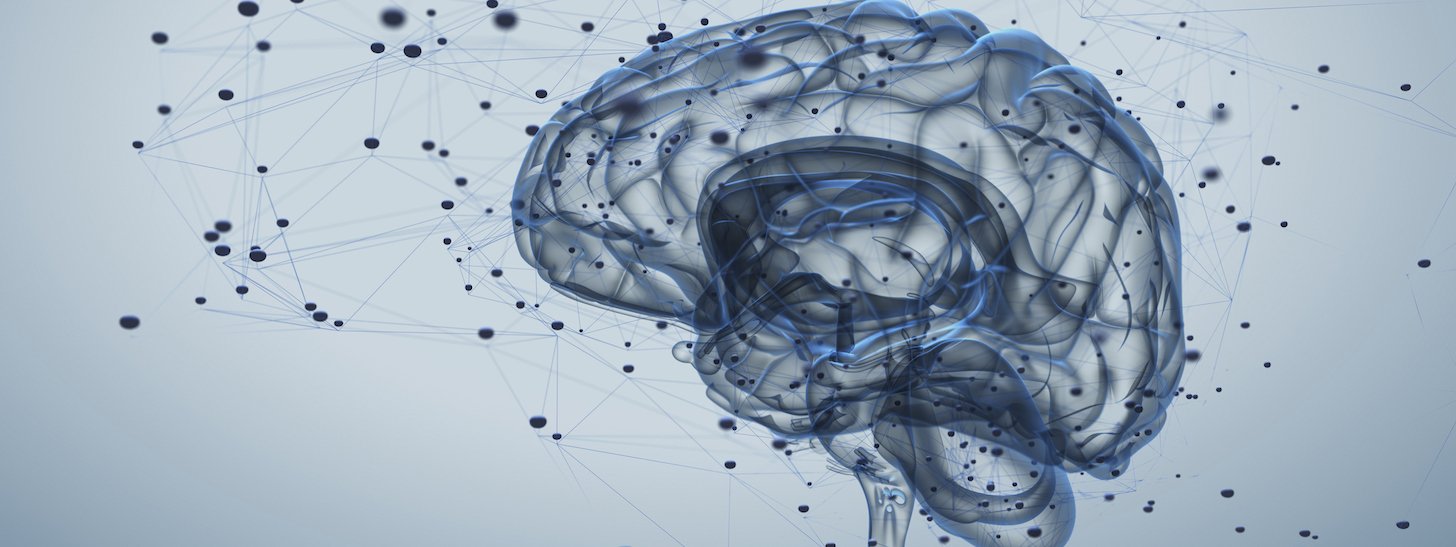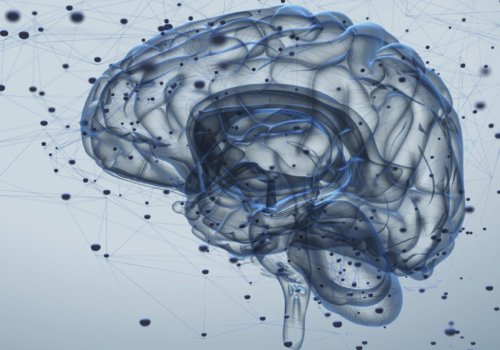
April Member Spotlight: Amy Gelfand, MD, FAHS
Amy Gelfand finds purpose in helping pediatric headache patients
This month, we are putting the spotlight on Amy Gelfand, MD, FAHS, whose career has been dedicated to pediatric headache medicine. She has been a member of AHS since 2011 and serves as the current chair of the Pediatric-Adolescent Headache Special Interest Section.
Gelfand first became interested in migraine and headache disorders during her residency.
“Mentorship played a strong role in my interest in headache medicine,” said Gelfand. “When I was a resident, I rotated through an adult headache center with Peter Goadsby.”
Her time at the headache center made it clear to Gelfand that headache medicine was what she wanted to practice.
“I liked that, most of the time, I could come to a diagnosis right there in the room with the patient,” said Gelfand. “In headache, most of the time a diagnosis is made through a careful and thorough history of the patient, and I like that we can come together during their visit and begin a treatment program.”
Today, Gelfand focuses on pediatric headache because she saw a need in the specialty.
“It was clear to me that pediatric headache was a major and common problem for kids,” said Gelfand. “There wasn’t anyone specialized in pediatric headache at my institution, and I knew that I would be able to make a real contribution to those who live with headache.”
One challenge facing children and teens living with headache is that they don’t have control of their schedules, leading to a disadvantage in areas of treatment.
“They can’t control the time school starts in their school district,” Gelfand said. “Sometimes schools don’t allow students to administer their acute and/or preventative treatments. Some schools won’t let students keep water bottles on their desk or they may limit bathroom breaks.”
Adolescents who live with headache also face the challenge of social isolation. Gelfand works to combat this by supporting the migraine teen camps at the University of California, San Francisco.
“We get kids and parents together for a day-long camp,” Gelfand said. “The teens aren’t necessarily attending school or participating in the activities they used to, so the camp is great for them to connect with other peers who are going through something similar.”
Dr. Gelfand is most proud of the work she did to establish a link between infant colic and mothers with migraine. Further research by others in the field has found an association between infant colic and migraine in later childhood and adolescence.
“Infant colic—excessive crying in an otherwise healthy and well-fed baby—affects 5-20% of infants in the first few weeks of life,” said Gelfand. “We found that mothers who have migraine are more than twice as likely to have babies who have colic.”
Looking toward the future, Gelfand sees that the field has a long way to go.
“We need more research in headache science,” Gelfand said. “It’s amazing to me, given how common and disabling migraine can be, that only in 2018 did we get our first migraine-specific prevention medication class.”
Within AHS, Gelfand is on the Resident Education Program Committee, the Awards Committee and the Publications Committee. Previously, she was on the Scientific Program Committee.
The Resident Education Program Committee helps foster interest in headache medicine.
“The Resident Education Program focuses on showing residents how interesting and important the field of headache is, and encouraging them to do fellowships in headache medicine,” said Gelfand. “Patients deserve adequate access to specialists. We need to interest more people in the field so that the pace of research can accelerate.”
About Amy Gelfand
Name: Amy Gelfand, MD, FAHS
AHS Membership: Member since 2011
Primary: Director of the Pediatric Headache Program at the University of California, San Francisco; Current Chair of the Pediatric-Adolescent Headache Special Interest Section; Member of Resident Education Program, Publications and Awards Committees; Former Member of Scientific Program Committee.
Quote: “For pediatric patients who have frequent migraine or headache, it can negatively impact their quality of life and negatively impact their perceptions of their futures. Our role is to change that and to help decrease the influence that migraine has on them so that they can live full and complete childhoods and lives.”


